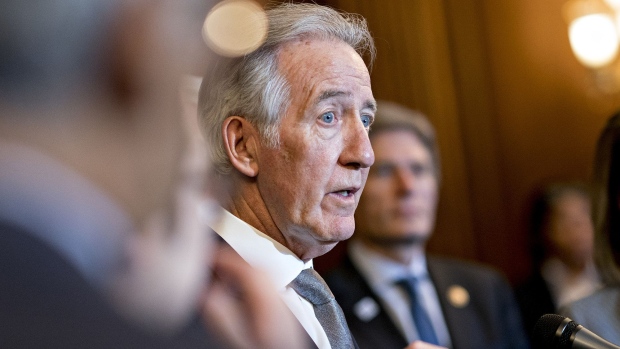Oct 27, 2021
Billionaires Levy Out, Millionaires Surtax on Table, Key Democrat Says
, Bloomberg News

(Bloomberg) -- The head of the House tax-writing committee said a proposal to put a levy on the assets of billionaires has been dropped in negotiations over revenue measures to pay for President Joe Biden’s social-spending bill.
The House is discussing with the Senate instead inclusion of a 3% surtax, on top of the top income rate, for those earning more than $10 million, Ways and Means Chair Richard Neal said Wednesday.
The billionaires’ tax proposal from Senate Finance Chair Ron Wyden was only released in detailed form Wednesday morning. Wyden insisted that the billionaires tax isn’t dead, and that every senator is sending staff to a Senate Finance briefing tonight on how it would work.
“Not a single senator has come close to saying, ‘I think it’s OK that billionaires continue to pay little or nothing in taxes for years on end,” Wyden said. He dismissed Neal’s declaration that it was out of the plan, saying, “Last time I looked, the United States Senate has a say, too. And so we are continuing to work with members.”
The Wyden-Neal tensions showcased the tough wrangling by Democrats to get a deal on revenue-raising measures to pay for a social-spending package that could approach $2 trillion.
Neal’s rejection of the proposal, after the White House said Biden backed the plan, injects more uncertainty into how Democrats will pay for the president’s agenda and what will be included in the package. Several other revenue provisions, including a plan for new reporting requirements for bank accounts, also are in flux.
Senator Joe Manchin, who along with Kyrsten Sinema has successfully reshaped the size and contours of the bill in recent weeks, had been among Democratic lawmakers expressing concerns about the billionaire tax, particularly given its potential complexity in implementation.
Manchin on Wednesday called it “convoluted” and said he didn’t like that it solely targets successful business owners who have created lots of jobs and donated to philanthropic endeavors, rather than a broader base of high-net-worth individuals. Neal had previously questioned whether it would pass constitutional muster, a point also made by Republicans.
It was proposed by Wyden as an alternative to raising rates on top earners and corporations to help fund an expansive plan for social programs and to address climate change. Opposition Sinema to raising rates forced Democrats to look elsewhere for revenue.
©2021 Bloomberg L.P.







